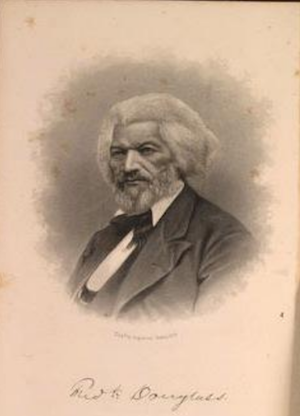Without leadership, the mob may win and the resulting chaos will benefit no one except those who foment it.
 Americans used to have great reverence for the spoken word. Before radio and TV, there were political speeches and the great orators were prized for their ability to move audiences to laughter, to tears, or to rage.
Americans used to have great reverence for the spoken word. Before radio and TV, there were political speeches and the great orators were prized for their ability to move audiences to laughter, to tears, or to rage.
It’s ironic that some of the most famous and beloved Americans were terrible public speakers. Jefferson stammered his way through his first inaugural. Washington hated to speak in public — partly because his teeth kept slipping.
Abraham Lincoln’s speaking voice was a high-pitched, nasally whine. But what he said moved mountains. The Gettysburg Address redefined freedom and liberty in a way that everyone understood and believed. His second inaugural address (the shortest in history) — “With malice toward none and charity for all” — became public policy the minute he uttered it.
Speeches have made American history. They’ve changed history. And on July 5, 1852, the former slave and leading abolitionist Frederick Douglass spoke at an event commemorating the signing of the Declaration of Independence, held at Rochester’s Corinthian Hall. In front of hundreds of abolitionists, Douglass’s speech was not only a chastisement for the sin of slavery but also a stirring and powerful defense of human liberty and the very American concept of liberty and equal rights for all.
“What, to the American slave, is your 4th of July? I answer: a day that reveals to him, more than all other days in the year, the gross injustice and cruelty to which he is the constant victim. To him, your celebration is a sham; your boasted liberty, an unholy license; your national greatness, swelling vanity; your sounds of rejoicing are empty and heartless; your denunciations of tyrants, brass fronted impudence; your shouts of liberty and equality, hollow mockery,” the group read.
That passage has echoes of rhetoric from today’s Black Lives Matter. But Douglass was speaking 168 years ago, before the freeing of the slaves, before the end of Jim Crow, before the establishment of voting rights and civil rights. That there is residual racism shouldn’t surprise anyone.
That passage is often taken out of context because of its powerful imagery. But Douglass was far more hopeful for the future than some of his writings would indicate.
Allow me to say, in conclusion, notwithstanding the dark picture I have this day presented, of the state of the nation, I do not despair of this country. There are forces in operation which must inevitably work the downfall of slavery. “The arm of the Lord is not shortened,” and the doom of slavery is certain. I, therefore, leave off where I began, with hope.
While drawing encouragement from “the Declaration of Independence,” the great principles it contains, and the genius of American Institutions, my spirit is also cheered by the obvious tendencies of the age. Nations do not now stand in the same relation to each other that they did ages ago. No nation can now shut itself up from the surrounding world and trot round in the same old path of its fathers without interference.
The time was when such could be done. Long established customs of hurtful character could formerly fence themselves in, and do their evil work with social impunity. Knowledge was then confined and enjoyed by the privileged few, and the multitude walked on in mental darkness.
But a change has now come over the affairs of mankind. Walled cities and empires have become unfashionable. The arm of commerce has borne away the gates of the strong city. Intelligence is penetrating the darkest corners of the globe. It makes its pathway over and under the sea, as well as on the earth. Wind, steam, and lightning are its chartered agents. Oceans no longer divide, but link nations together. From Boston to London is now a holiday excursion. Space is comparatively annihilated. — Thoughts expressed on one side of the Atlantic are distinctly heard on the other.
RELATED ARTICLE: “Anarchists Have No Bounds” – Trump Rage-Tweets After Black Abolitionist Statue Torn Down In Rochester
In condemning slavery and the slave master, he also condemned even those abolitionists who tolerated it. Indeed, abolitionists were made up largely of anti-slavery Christians who were all men and women of their time. Some of them looked at Douglass as a circus freak — an anomaly of the black race. There were a few abolitionists who were for “equal rights” as they understood the term, but many were at a loss of what was to be done with millions of illiterate freed slaves. Were they smart enough to vote? Lincoln thought some of the more intelligent blacks might be given the franchise. He also wanted to move the freedmen to Belize.
America has always been about the promise of joy — not the absolute certainty of perfect freedom and equality — but rather the “promise” that these things were attainable. The unrest today is threatening the civic order that would bring about a fulfillment of that promise because the mob has never given America anything except pain and suffering.
Without leadership, the mob may win and the resulting chaos will benefit no one except those who foment it.
Written by Rick Moran and published by PJ Media ~ June 16, 2020
